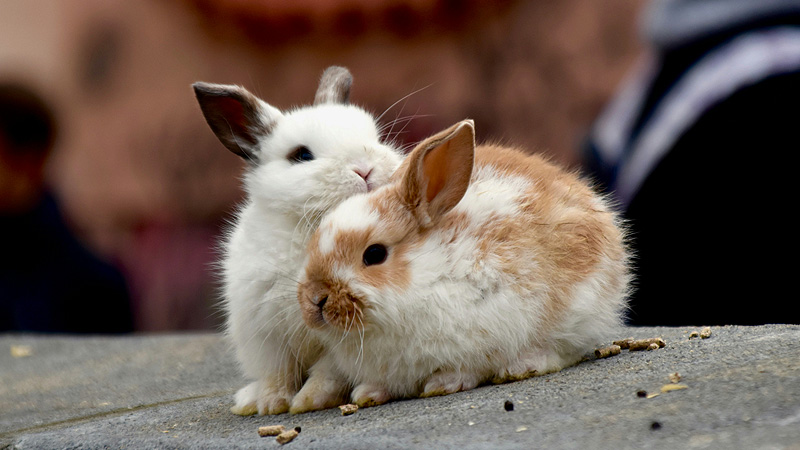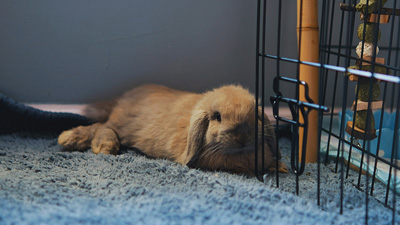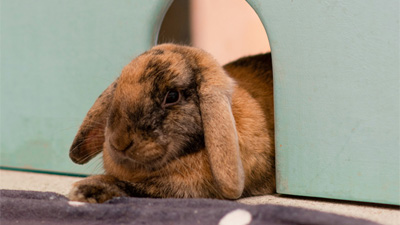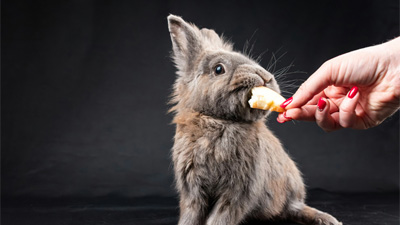Are Rabbits Better Kept In Pairs? Yes!

Photo by Lorna Ladril on Unsplash
Rabbits are social creatures known for their gentle nature and playful antics, making them popular pets for individuals and families alike. While rabbits can thrive as solitary pets, there's growing recognition of the benefits of keeping them in pairs.
In this article, we'll delve into the dynamics of rabbit companionship, exploring the advantages of keeping rabbits in pairs and offering insights into creating a harmonious living environment for these sociable animals.
Understanding Rabbit Social Behavior
In the wild, rabbits are highly social animals that live in groups, known as colonies or warrens. This natural inclination towards socialization carries over into domesticated rabbits, who often benefit from companionship with their own kind. Rabbits communicate with each other through various behaviors, including grooming, playing, and engaging in mutual grooming sessions known as "bunny kisses."
6 Benefits of Keeping Rabbits in Pairs
1. Companionship
One of the primary benefits of keeping rabbits in pairs is providing them with constant companionship and social interaction. Rabbits are naturally social animals that enjoy the company of their own kind, and having a rabbit companion can help prevent loneliness and boredom.
2. Mental Stimulation
Rabbits are intelligent and curious animals that thrive on mental stimulation and enrichment. Interacting with a rabbit companion provides opportunities for play, exploration, and mental engagement, helping to keep both rabbits mentally stimulated and fulfilled.
3. Exercise and Activity
Rabbits are active animals that require regular exercise to maintain their physical health and well-being. Having a rabbit companion encourages physical activity through play, chasing, and hopping, which is essential for preventing obesity and promoting cardiovascular health.
4. Emotional Support
Rabbits form strong bonds with their companions and derive emotional comfort and security from their presence. Having a rabbit companion can help reduce stress and anxiety in rabbits, particularly in unfamiliar or stressful situations.
5. Mutual Grooming
Mutual grooming is an essential aspect of rabbit social behavior, serving both practical and social functions. Keeping rabbits in pairs allows them to engage in grooming sessions, which helps maintain their fur cleanliness and reinforces their bond with each other.
6. Reduced Behavioral Issues
Solitary rabbits may exhibit behavioral issues such as loneliness, depression, and destructive behavior. Keeping rabbits in pairs can help alleviate these issues by providing them with social interaction and companionship, leading to a happier and more well-adjusted pet.
Considerations for Keeping Rabbits in Pairs
While keeping rabbits in pairs offers numerous benefits, there are important considerations to keep in mind to ensure a successful and harmonious pairing:
Compatibility:
When introducing rabbits to each other, it's crucial to consider their personalities, age, and gender compatibility. Not all rabbits will get along with each other, and proper introductions and supervision are necessary to facilitate a positive relationship.
Neutering/Spaying:
To prevent unwanted breeding and potential aggression between rabbits, it's essential to have both rabbits neutered or spayed before introducing them to each other. Neutering/spaying also has health benefits and can help reduce the risk of certain reproductive-related diseases.
Housing and Space:
Provide a spacious and well-equipped living environment for your rabbit pair, with separate areas for eating, sleeping, and litter box use. Ensure that the housing setup allows for privacy and opportunities for social interaction, such as shared toys and hiding spots.
Monitoring and Supervision:
Monitor your rabbit pair closely during the initial introduction period and provide supervision during interactions until you're confident that they get along well. Be prepared to intervene if any signs of aggression or stress arise and seek guidance from a rabbit-savvy veterinarian or animal behaviorist if needed.
Conclusion
Keeping rabbits in pairs offers numerous benefits for their physical and emotional well-being, including companionship, mental stimulation, and emotional support. By understanding the social dynamics of rabbits and providing a suitable living environment, you can create a harmonious and fulfilling relationship with your rabbit companions. Whether you're adopting a bonded pair or introducing rabbits to each other for the first time, the joy of rabbit companionship is undeniable, enriching both the lives of the rabbits and their human companions alike.
You May Also Like
 Rabbit BreedsWhich Rabbit Is Best For Beginners?
Rabbit BreedsWhich Rabbit Is Best For Beginners? Rabbit BreedsDo Rabbits Smell If Kept Indoors?
Rabbit BreedsDo Rabbits Smell If Kept Indoors? Rabbit BreedsWhat Is The Friendliest Breed of Rabbit?
Rabbit BreedsWhat Is The Friendliest Breed of Rabbit? Rabbit BreedsWhich Type of Rabbit is Best for a Pet?
Rabbit BreedsWhich Type of Rabbit is Best for a Pet? Rabbit BreedsWhat Breed Of Rabbit Sheds The Least?
Rabbit BreedsWhat Breed Of Rabbit Sheds The Least? Rabbit BreedsWhich Rabbits Are Easiest To House Train? Netherland Dwarf
Rabbit BreedsWhich Rabbits Are Easiest To House Train? Netherland Dwarf